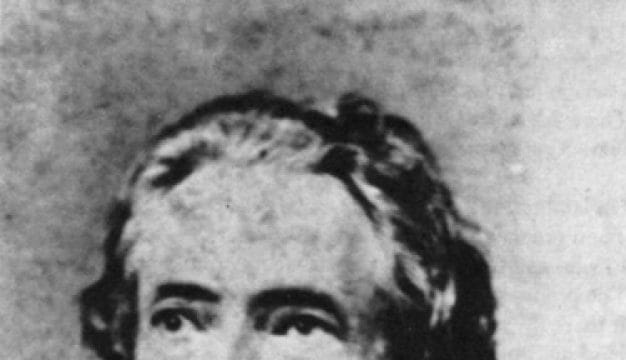Bessemer Hall of History
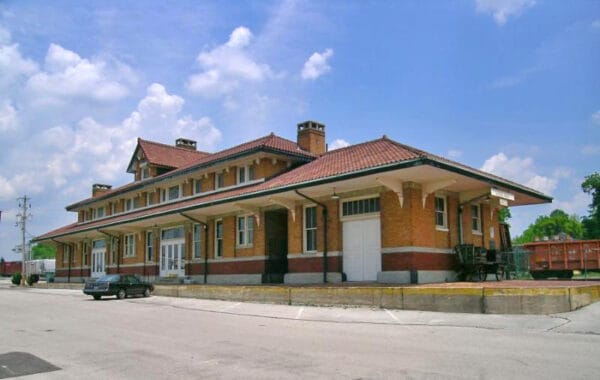 Bessemer Hall of History
The Bessemer Hall of History is a museum housed in the Alabama Great Southern Railway (later Southern Railway) Depot, located in downtown Bessemer, Jefferson County. The museum houses an notable collection of prehistoric Native American artifacts and memorabilia of famous Bessemer natives, but perhaps its most notable object is a typewriter recovered at the end of World War II from Nazi dictator Adolf Hitler’s retreat in the Bavarian Alps in Germany. Founded by the Bessemer Junior Service League in 1969, the museum was located for many years in the basement of the former Bessemer Post Office, which now houses the Bessemer Public Library. The museum moved to the depot in 1985 and was officially rededicated during Bessemer’s centennial celebration in 1987. The museum is overseen by a board of directors and staffed by one paid individual and volunteers.
Bessemer Hall of History
The Bessemer Hall of History is a museum housed in the Alabama Great Southern Railway (later Southern Railway) Depot, located in downtown Bessemer, Jefferson County. The museum houses an notable collection of prehistoric Native American artifacts and memorabilia of famous Bessemer natives, but perhaps its most notable object is a typewriter recovered at the end of World War II from Nazi dictator Adolf Hitler’s retreat in the Bavarian Alps in Germany. Founded by the Bessemer Junior Service League in 1969, the museum was located for many years in the basement of the former Bessemer Post Office, which now houses the Bessemer Public Library. The museum moved to the depot in 1985 and was officially rededicated during Bessemer’s centennial celebration in 1987. The museum is overseen by a board of directors and staffed by one paid individual and volunteers.
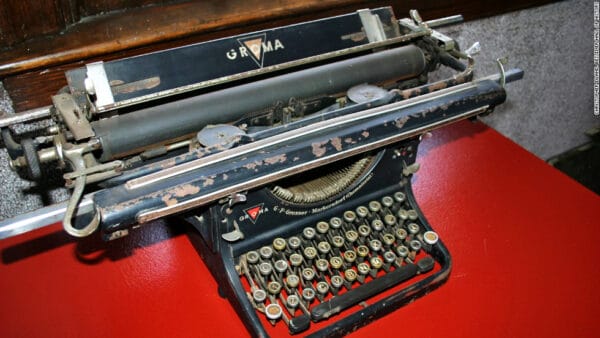 German Groma Typewriter
The Bessemer Hall of History is perhaps best known for a piece of office equipment in its collection, a typewriter known as “Hitler’s typewriter.” The 1930s Groma typewriter was donated by the family of a soldier assigned to inventory items found at the end of World War II in Adolf Hitler’s compound, Obersalzberg, in Berchtesgaden, Germany, in the Bavarian Alps. Although the museum has no documentation that the typewriter was used by Hitler himself, its association with his famous mountain hideaway has drawn visitors to the museum from around the world.
German Groma Typewriter
The Bessemer Hall of History is perhaps best known for a piece of office equipment in its collection, a typewriter known as “Hitler’s typewriter.” The 1930s Groma typewriter was donated by the family of a soldier assigned to inventory items found at the end of World War II in Adolf Hitler’s compound, Obersalzberg, in Berchtesgaden, Germany, in the Bavarian Alps. Although the museum has no documentation that the typewriter was used by Hitler himself, its association with his famous mountain hideaway has drawn visitors to the museum from around the world.
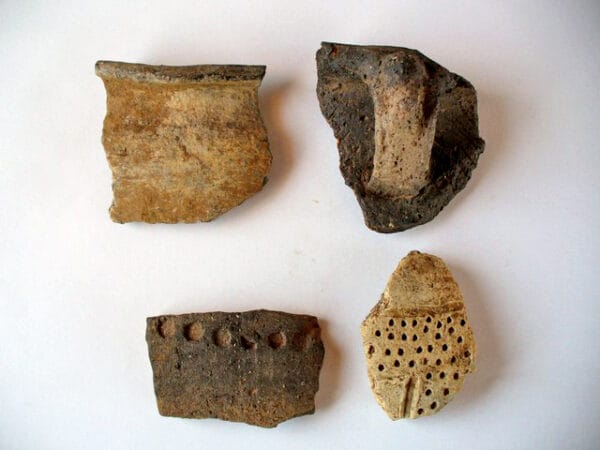 Mississippian Potsherds
The museum also is known for its collection of artifacts from the Mississippian Period of Native American history (800 AD to 1500 AD); the Mississippians were the earliest inhabitants of the Jones Valley region in which Bessemer sits. Items in the collection consist of potsherds, projectile points, shell beads, and other material from a small complex of ceremonial and burial mounds located along Village Creek in Bessemer. The site was contemporaneous with the larger and more famous Moundville site on the Warrior River in west Alabama. The mounds and associated habitation sites were excavated by David DeJarnette and Steve Wemberly of the Alabama Museum of Natural History, University of Alabama, in the 1930s. The site, not far from today’s Alabama Adventure Water Park, has since been destroyed as the result of local development.
Mississippian Potsherds
The museum also is known for its collection of artifacts from the Mississippian Period of Native American history (800 AD to 1500 AD); the Mississippians were the earliest inhabitants of the Jones Valley region in which Bessemer sits. Items in the collection consist of potsherds, projectile points, shell beads, and other material from a small complex of ceremonial and burial mounds located along Village Creek in Bessemer. The site was contemporaneous with the larger and more famous Moundville site on the Warrior River in west Alabama. The mounds and associated habitation sites were excavated by David DeJarnette and Steve Wemberly of the Alabama Museum of Natural History, University of Alabama, in the 1930s. The site, not far from today’s Alabama Adventure Water Park, has since been destroyed as the result of local development.
The Hall of History is also noteworthy for its collections of local, regional, and even national interest. It houses photographs, documents, and other memorabilia associated with the area’s most famous citizens, including Henry Fairfield DeBardeleben, iron and coal magnate and founder of Bessemer, and sports stars Vincent “Bo” Jackson, who attended McAdory High School, and the Allison stock-car racing family. The Allison displays include the racing uniform and parts from one of the racecars of the family patriarch, Bobby Allison, as well as memorials to Bobby’s deceased sons, Clifford and Davey.
Other items in the collection include numerous photographs and artifacts related to the area’s industrial history, such as coal and iron ore mines, steel mills, and manufacturing facilities. The museum’s collection also includes a Pullman boxcar located in the lot across the street that commemorates the one-millionth boxcar manufactured by the Pullman Standard Company. The boxcar was donated by the Bessemer division of the Pullman Company, which manufactured a variety of freight cars in the city through much of twentieth century. It houses a working model railroad exhibit that portrays downtown Bessemer in about 1950.
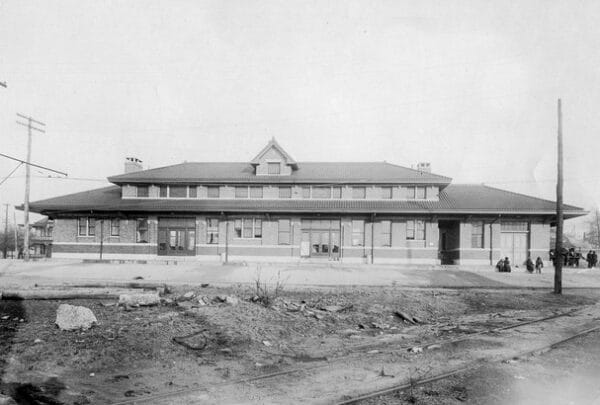 Alabama Great Southern Railway Depot
The depot itself is an important historical building. Built in 1916 at a cost of $30,000, it reflects the classic design of the period for railroad stations. With its long 170-foot axis parallel to the adjacent tracks, the building easily accommodated passengers and freight on the Great Southern Railroad trains that ran between Chattanooga and New Orleans. The heavy terracotta-tile roof is original, as are the interior plaster walls. The original ticket booth today functions as the museum office. Although a steady stream of freight trains and Amtrak passenger trains pass the depot every day, it has been out of service as a passenger station since the 1970s. The building was placed on the National Register of Historic Places in 1973 as the Southern Railways Terminal Station. In the fall of 2021, the museum underwent a significant renovation.
Alabama Great Southern Railway Depot
The depot itself is an important historical building. Built in 1916 at a cost of $30,000, it reflects the classic design of the period for railroad stations. With its long 170-foot axis parallel to the adjacent tracks, the building easily accommodated passengers and freight on the Great Southern Railroad trains that ran between Chattanooga and New Orleans. The heavy terracotta-tile roof is original, as are the interior plaster walls. The original ticket booth today functions as the museum office. Although a steady stream of freight trains and Amtrak passenger trains pass the depot every day, it has been out of service as a passenger station since the 1970s. The building was placed on the National Register of Historic Places in 1973 as the Southern Railways Terminal Station. In the fall of 2021, the museum underwent a significant renovation.
The Bessemer Hall of History regularly displays temporary exhibitions of artifacts and art of local interest, and it hosts special annual events such as Day at the Depot, Art on the Tracks, and a Christmas celebration. Admission is free.

